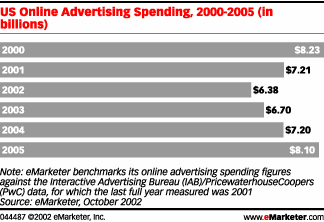Premiere Ready for a Close-Up
�A lot of magazine companies are trying to put their houses in order,� says Kliger. �In the case of Premiere, we had to figure out just what the core readership was and how we could get more money from them.� Its solution was to raise the cover price from $3.50 to $3.99, and increase its introductory subscription price by 20%. As part of a new nine-point strategy, Premiere will also return to its larger trim size and it will get a more contemporary saddle stitched binding, along with eight more edit pages.
Hachette predicts the changes will likely mean the lost of a nearly a fifth of its readers, so it is decreasing its rate base by 100,000 to 500,000. �We got tired of trying to attract marginal readers,� explains Kliger. �This also allows us to set our long-term circulation strategy in a way that doesn�t make a priority the propping-up of a circulation level that is higher than it should be.�
--------
AD PROS GET LOW MARKS FOR HONESTY, ETHICS
Advertising practitioners rank near the bottom among professionals in honesty and ethical standards, according to a new national poll.
A mere 9% of people polled by the Gallup Organization rated ad professionals' ethics as "very high" or "high," putting them slightly ahead of car salesmen, who got 6%, and telemarketers, with 5%.
You aren't surprised by this are you?
--------
Madonna produces TV rock drama series for ABC. "The Practice"'s Marla Sokoloff will star as a teen idol who takes time off to develop her musical skills
Multi-hyphenate Madonna is adding TV producer to her r�sum�. According to the Hollywood Reporter, her Maverick Films is teaming with Touchstone TV to produce "Alyx," a drama series for ABC about a teen pop idol. She and her Maverick Films partner Guy Oseary will serve as two of the executive producers on the project, which will star Marla Sokoloff of the network's "The Practice."
Sokoloff, who has performed her own songs in Los Angeles clubs and is signed to Madonna's Maverick record label, will play Alyx Mason, a teen queen who abandons the pop scene to develop her musicianship and become more of a rocker. (In other words, less Britney, more Avril.) Sounds like a situation that the executive producer, herself a onetime teen pop icon who reemerged last year wielding a guitar on her Drowned World tour, knows well.
Maybe this will be the one for Sokoloff. To date, she's been in cheesy movies and relegated to a bit part on the Practice. Does she have promise? Who knows but it will be fun to watch.
--------
Bonzi Hit With Deceptive-Ad Complaint
The suit alleges Bonzi's advertising banners -- which mimic dialog boxes that feature "message alert," security alert," or "warning" -- trick Internet users into clicking through to Bonzi's site, where it sells software. Philip. The suit asks for Bonzi to pay $500 for each Internet user who has encountered one of the ads and $5 per impression served. Besides naming Bonzi as a defendant, it also names Bonzi's chief executive officer and chief financial officer.
Yes, what Bonzi is doing is a dispicable and cheap form of online "tricksvertising" (now there's a nice new term) but is it any worse then the banners that use to have fake scrollbars on them? Should a company be sued for effective yet bad creative and questionable the tactics?
No advertising is 100% true. We all know and accept that. If was all true, it wouldn't be advertising, would it? It would be news story.
Oh but wait, we live in a country where we can sue a restaurant for making us fat.
--------
MSN OKs Unicast Ads
Two months after it was shut out of MSN's announcement that it would accept outside rich media ads, New York-based Unicast Communications has received MSN's blessing of its rich media ad formats.
--------
NPR: On the Media
BROOKE GLADSTONE: You were quoted in a story in the New York Observer last month saying that Playboy was looking to pull back from the explicit nature of its sexuality. How come?
HUGH HEFNER: Well I think that explicit sexuality has less meaning today. You know the speculation after that interview was that I was going to be taking the nudity out of the magazine. Now that is obviously not my intention. But I think that we can do other kinds of things and emphasize other kinds of things in the magazine. What I'm looking for is an appropriate mix that is more satisfying.
BROOKE GLADSTONE: Does that mean no more centerfold?
HUGH HEFNER: No, it certainly doesn't mean no centerfolds.
Good to know.
--------
Colleges Shocked to Discover Akamai Servers on Campuses Helped Speed Porn, Gaming Sites
Akamai Technologies, the Cambridge Internet company, is using server computers installed on networks at university campuses to help deliver content for teen-pornography Web sites and offshore gambling sites whose legality is in question.
Under a partnership intended to give schools faster, cheaper Net access while they defray some of Akamai's operating costs, Akamai has installed devices to speed delivery of Web sites to millions of Net users at schools including the Massachusetts Institute of Technology, the University of Massachusetts, Babson College, Brown University, Dartmouth College, the University of Vermont, and Wesleyan.
A tantalizing headline, yes, but a good article on the issues facing companies involved in serving bandwidth to users. Porn is always a questionable issue, but companies like Akamai have a powerful, if relatively background and unknown purpose: to ease the log jam in Internet traffic by caching and serving highly requested content on a localized basis.
--------
Online Ad to Rebound in 2003
According to eMarketer's just-released Interactive Marketing: Stats, Strategies and Trends report, after two straight years of decreasing sales, US online advertising will begin recovering next year, slowly.
According to eMarketer projections, 2003 spending will rise slightly to $6.70 billion, up from $6.38 billion this year. The expected bounce-back is due to a combination of factors, including traditional marketers devoting larger slices of their ad budgets to online advertising as well as a general easing of the economic recession. By 2005, online ad expenditures will hit $8.10 billion-still less, however, than 2000's spending of $8.23 billion.
All good things take time.
--------
HBO Shows Use Real Brands But Channel Has No Paid Product Placement Deals
As HBO's hit gangland drama, The Sopranos, heads for the climax of its fourth season on Sunday, there seem to be more consumer products flying around than Ralph Cifaretto body parts.
In one recent episode, we saw Ralph squirt Tony Soprano in the eyes with a can of Raid ant and roach killer as the two fight to the death in a kitchen. Tony later "gets the red out" with Visine, before slicing Ralph into pieces.
It's so refreshing to see a show that uses products as they are used in everyday life. No more generic, "I'll have a beer" sitcom lines. Marketers will soon realize that they will not have complete control over how their products are portrayed in some media. A whole new form of negotiation is now taking place.
There will be paid product placements. Those are easy. You have a contractual agreement on product usage. But, product placement Sopranos style is something completely different. There will be very touchy negotiations, if any at all, between product companies and producers. Not all will be happy. SC Johnson sure wasn't when their product, Raid, was used as a weapon.
It's all getting very interesting now.
--------
Electronic Media Online -- Television and Media News
David Barrett, who heads the company that has the most ABC affiliates in the country, has a message for the network: Slash your prime-time schedule from 22 hours a week to 15 so his stations can make some decent money.
"I would love to see the networks cut back to 15 [hours a week]," said Mr. Barrett, president and CEO of Hearst-Argyle Television, at a financial seminar hosted by Bear Stearns in Washington last week.
[..]
But assuming the time were returned -- an eventuality that could be accomplished by a simple change in an affiliate's contract with a network -- affiliates could fill the slot with syndicated programs or other fare they felt would make more money for them. ABC had no comment.
More money maybe. But do you really think local programming would be any better?
--------

|
|



